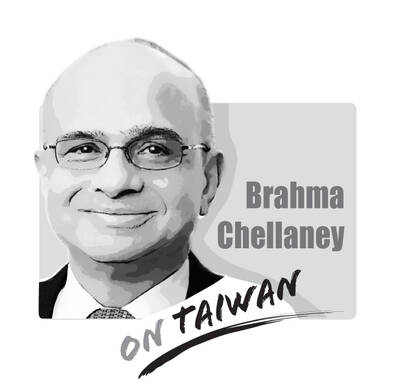The freedom to talk
“Opportunistic, rash and shortsighted” — this is what the Beijing government has branded the meeting between the Dalai Lama and French President Nicolas Sarkozy. But the words more aptly describe Beijing’s tactics.
The recent demand by Beijing that Sarkozy not meet with the Dalai Lama was ridiculous and, thankfully, ignored. The very fact that the demand was made at all illustrates the naivete and pompous attitude of the Chinese government in its attempt to push the political agenda outside its own country.
Politics is often complicated but meeting freely and communicating is a basic human right that should be vigilantly guarded at all costs.
Governments such as those in North Korea and Myanmar suppress the right of people to assemble and communicate their views to one another, and are seen as backward regimes. It is surprising that China, for all its celebrated progress, would continue to use such tactics to thwart personal communication.
It is particularly alarming that China would even attempt to make demands on two people living outside its own borders.
Sarkozy could not have afforded to kowtow to these unreasonable demands; the implications were too terrible to imagine. It would call into question his integrity as a leader who places basic human freedoms before politics.
Let’s look at what China accomplished. It received a black eye in the international arena. After putting its best foot forward in this year’s Olympics, Beijing has tarnished its progressive image by playing the bully and storming out of an EU summit.
China’s claim that the Sarkozy meeting with the Dalai Lama hurt the feelings of the Chinese people is downright silly — and talk of boycotts on French products only serves to illustrate this point.
Sarkozy was right to assert that he was “free to talk to whoever he wants.” We all should be: It is a matter of values, convictions and, above all, freedom.
Paul Oliver
Zuoying, Kaohsiung City
Taiwan’s victory in the World Baseball Softball Confederation Premier12 championship is an historic achievement. Yet once again this achievement is marred by the indignity of the imposed moniker “Chinese Taipei.” The absurdity is compounded by the fact that none of the players are even from Taipei, and some, such as Paiwan catcher Giljegiljaw Kungkuan, are not even ethnically Chinese. The issue garnered attention around the Paris Olympics, yet fell off the agenda as Olympic memories retreated. “Chinese Taipei” persists, and the baseball championship serves as a reminder that fighting “Chinese Taipei” must be a continuous campaign, not merely resurfacing around international
Taiwan Semiconductor Manufacturing Co (TSMC) appears to be encountering some culture shock and safety issues at its new fab in Arizona. On Nov. 7, Arizona state authorities cited TSMC for worker safety violations, fining the company US$16,131, after a man died in May. The Arizona Division of Occupational Safety and Health released its six-month investigation into the fatality and cited TSMC for failing to keep the workplace free from hazards likely to cause death or serious harm. At about the same time, the chip giant was also sued for alleged discriminatory hiring practices favoring Asians, prompting a flurry of debate on whether TSMC’s
This month, the National Health Insurance (NHI) is to implement a major policy change by eliminating the suspension-and-resumption mechanism for Taiwanese residing abroad. With more than 210,000 Taiwanese living overseas — many with greater financial means than those in Taiwan — this reform, catalyzed by a 2022 Constitutional Court ruling, underscores the importance of fairness, sustainability and shared responsibility in one of the world’s most admired public healthcare systems. Beyond legal obligations, expatriates have a compelling moral duty to contribute, recognizing their stake in a system that embodies the principle of health as a human right. The ruling declared the prior

US president-elect Donald Trump is inheriting from President Joe Biden a challenging situation for American policy in the Indo-Pacific region, with an expansionist China on the march and threatening to incorporate Taiwan, by force if necessary. US policy choices have become increasingly difficult, in part because Biden’s policy of engagement with China, including investing in personal diplomacy with President Xi Jinping (習近平), has not only yielded little but also allowed the Chinese military to gain a stronger footing in the South China Sea and the Taiwan Strait. In Xi’s Nov. 16 Lima meeting with a diminished Biden, the Chinese strongman signaled little